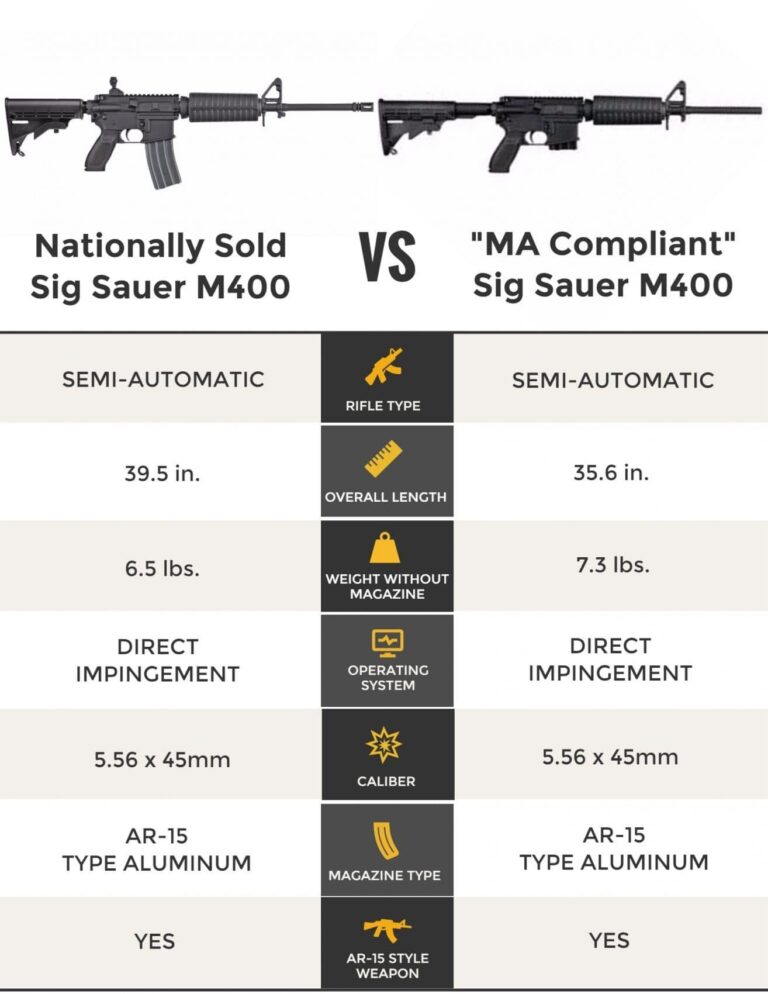Massachusetts courts have reaffirmed the state’s assault weapon ban, dismissing multiple legal challenges that sought to overturn the legislation. The rulings mark a notable victory for lawmakers and advocates who argue the restrictions are essential for public safety, even as opponents contend they infringe on Second Amendment rights. This latest judicial affirmation underscores Massachusetts’ firm stance on gun control amid ongoing national debates over firearm regulations.
Table of Contents
- Massachusetts Courts Reinforce Statewide Assault Weapon Ban Amid Legal Disputes
- Judicial Analysis Highlights Public Safety and Constitutional Balancing
- Impact of Ruling on Gun Owners and Future Legislation in Massachusetts
- Legal Experts Advise Compliance and Considerations for Firearm Possessors
- In Conclusion
Massachusetts Courts Reinforce Statewide Assault Weapon Ban Amid Legal Disputes
Massachusetts courts have decisively reaffirmed the state’s commitment to controlling firearm regulations by upholding the assault weapon ban despite recent legal challenges. Judges emphasized the legislature’s clear intent to prioritize public safety, rejecting arguments that the law infringes on constitutional rights. This ruling ensures the continuation of strict controls on firearms considered especially dangerous, solidifying Massachusetts’ position among states with some of the toughest gun laws in the nation.
Key aspects of the court’s decision include:
- Upholding the statute’s definitions and prohibitions on certain semi-automatic weapons
- Affirming the state’s authority to enact measures aimed at reducing gun violence
- Rejecting challenges based on alleged violations of constitutional protections without sufficient legal basis
This verdict marks a significant legal precedent, reinforcing the judiciary’s role in balancing individual rights with public welfare concerns. As legal disputes continue to surface nationwide, Massachusetts’ firm stance signals its dedication to enforce rigorous gun control policies for the safety of its citizens.
Judicial Analysis Highlights Public Safety and Constitutional Balancing
The Massachusetts courts have delivered a decisive ruling affirming the state’s assault weapon ban, emphasizing a nuanced approach to public safety without undermining constitutional rights. The judicial analysis meticulously balanced the Commonwealth’s compelling interest in reducing gun violence against individual Second Amendment claims.In its decision, the court highlighted that while the constitutional right to bear arms is protected, it is not absolute and can be subject to reasonable restrictions aimed at protecting the community at large.
The ruling identified key considerations that shaped the court’s judgment:
- The demonstrated correlation between assault weapons and heightened risk in mass shootings and violent crimes.
- The legislature’s role in enacting measures that preserve public welfare without wholesale infringement on lawful firearm ownership.
- The precedent that constitutional liberties must be exercised responsibly within the framework of public safety.
By upholding the ban, the court reinforced Massachusetts’ commitment to maintaining a legal habitat where citizen safety and constitutional rights coexist through thoughtful statutory boundaries.
Impact of Ruling on Gun Owners and Future Legislation in Massachusetts
Gun owners in Massachusetts must now navigate a more restrictive regulatory landscape as courts reaffirm the state’s assault weapon ban. This ruling effectively limits legal possession and sales of certain firearms, signaling a stricter interpretation of existing gun laws. Advocates for gun rights have expressed concern over potential increases in legal challenges and confusion over compliance, while law enforcement agencies prepare to enforce the ban with renewed authority. The decision also reinforces public safety arguments posed by proponents of the legislation.
Looking ahead, lawmakers are expected to consider additional measures that build on this judicial affirmation. Potential future legislation may include:
- Enhanced licensing requirements for firearm ownership and transfers
- Expanded background checks and waiting periods for gun purchases
- Increased penalties for illegal possession or trafficking of banned weapons
- Education initiatives focusing on firearm safety and responsible ownership
These prospective changes aim to balance Second Amendment rights with community safety, while providing clearer guidance to gun owners and dealers throughout Massachusetts.
Legal Experts Advise Compliance and Considerations for Firearm Possessors
Legal experts emphasize the critical importance of adherence to Massachusetts’ strict firearm regulations in the wake of the court’s reaffirmation of the assault weapon ban. They caution that firearm owners must remain vigilant, ensuring their possessions align fully with the state’s legal definitions and restrictions to avoid significant penalties. Professionals advise regular review of updated laws and court rulings, noting that non-compliance can result in severe consequences, including fines, confiscation, or criminal charges.
Key recommendations from attorneys include:
- Meticulously verifying weapon classifications against the current banned list to avoid inadvertent violations.
- Maintaining complete documentation such as purchase records and registrations for all firearms.
- Consulting qualified legal counsel when unsure about firearm legality or ownership rights under evolving statutes.
- Proactively participating in state-approved firearm safety and compliance programs to stay informed.
These measures, experts argue, are essential to safeguarding firearm owners’ rights while respecting public safety priorities established by the Massachusetts judiciary.
In Conclusion
The recent decisions by Massachusetts courts reaffirm the state’s commitment to stringent gun control measures,underscoring the judiciary’s role in balancing public safety with constitutional rights. Despite ongoing legal challenges, the state’s assault weapon ban remains firmly in place, reflecting a broader effort to curb gun violence in the Commonwealth. As this issue continues to evolve, the courts’ rulings signal that Massachusetts will maintain its tough stance on assault weapons, setting a precedent for future legislative and judicial actions.

